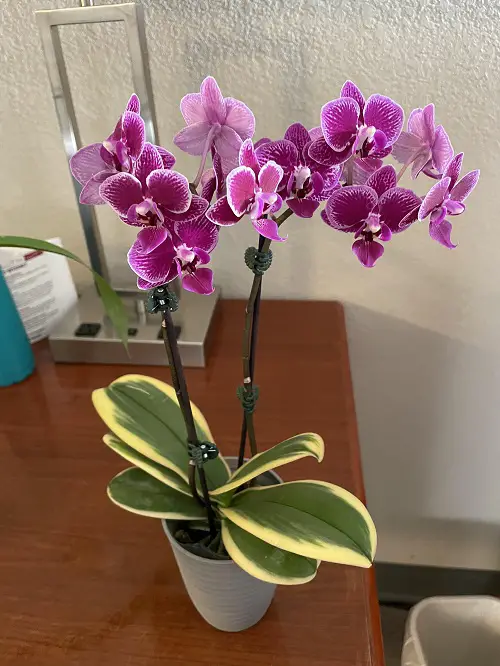Here are Five Times When You Should Not Fertilize Your Orchids to keep them happy and blooming without overdoing it!
Orchids are said to enjoy a “weekly, weakly” dose of micronutrient-rich fertilizers, but in practice, they need little feed. And while some species may relish an occasional magnesium and calcium boost, there are times when you should not fertilize your orchids at all!
Times When You Should not Fertilize Your Orchids
1. Do Not Feed a Dormant Orchid
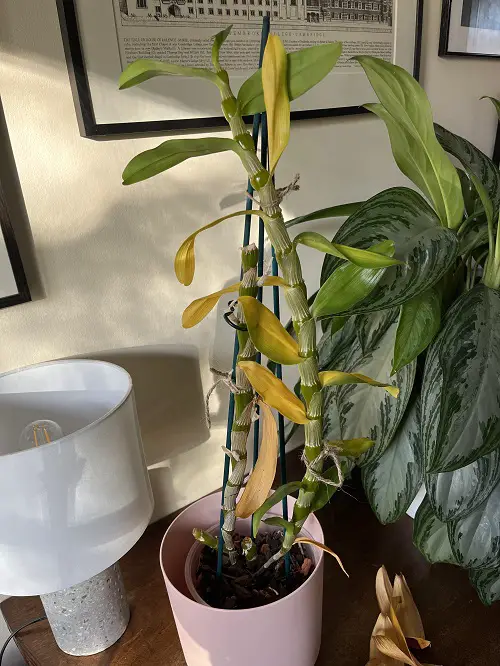
Popular orchid varieties such as Dendrobiums, Cymbidiums, and some other species go through a prominent dormancy period from fall onwards into winter. As the days get shorter and colder, it is time to cut back on watering and fertilizers.
In the wild, this period is also marked by reduced rainfall and chilly weather, occurring soon after flowering concludes. This phase signals the preparation for dormancy, which could last up to 12 weeks in some species, and it’s time to leave your orchid alone.
If you fertilize your orchid during its dormancy, it can lead to salt buildup in the growing medium and damage the roots. Pull back on any fertilizers and flush the pots with water alone during this time. Study your orchid variety to determine its seasonal needs as well.
2. Avoid Fertilizing a Declining Orchid
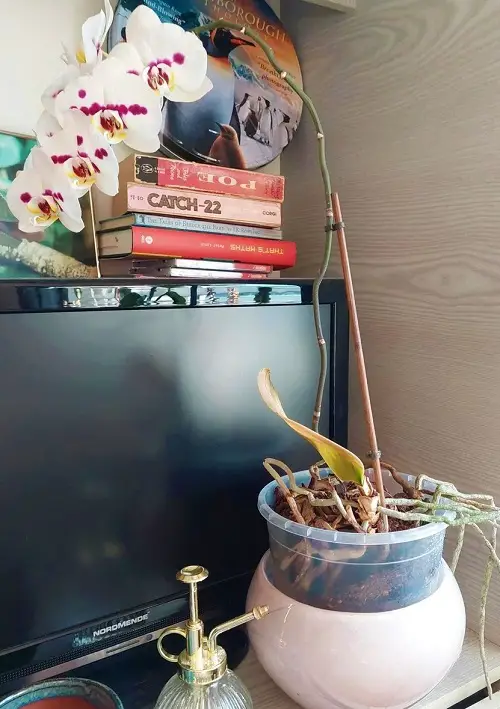
If you see your orchid shows signs of weakness, you may be tempted to boost its health with feed. But do not fertilize your orchid, especially when it’s weak and dying! Shedding leaves, yellowing, and wilting—these could indicate several issues apart from a lack of nutrients.
Avoid feeding your orchid at such a vulnerable time as it won’t have any strength to pull up any of the nutrients—it will simply lead to a salt buildup and further damage your plant. Instead, identify the issue and allow your orchid to rest, heal, and revive naturally.
3. No Feeding During Blooms
Generic fertilizers often contain a substantial amount of nitrogen, which helps foliage and root growth. So, feeding your orchid a regular fertilizer during its flowering phase will distract the plant from flowers, cause bud blasts, and redirect its energy into foliage production.
Pick an orchid-specific fertilizer with ample micronutrients and typically feed it regularly before its bloom season and stop or reduce fertilization once the buds appear. Check out these amazing homemade orchid nutrition recipes. Remember to dilute and calculate your feed as per the species, needed nutrient strength, and soil pH.
If you really wish to fertilize during the flowering period, use a low-nitrogen feed and reduce the frequency and strength.
4. Avoid During Visible Salt Build-Up
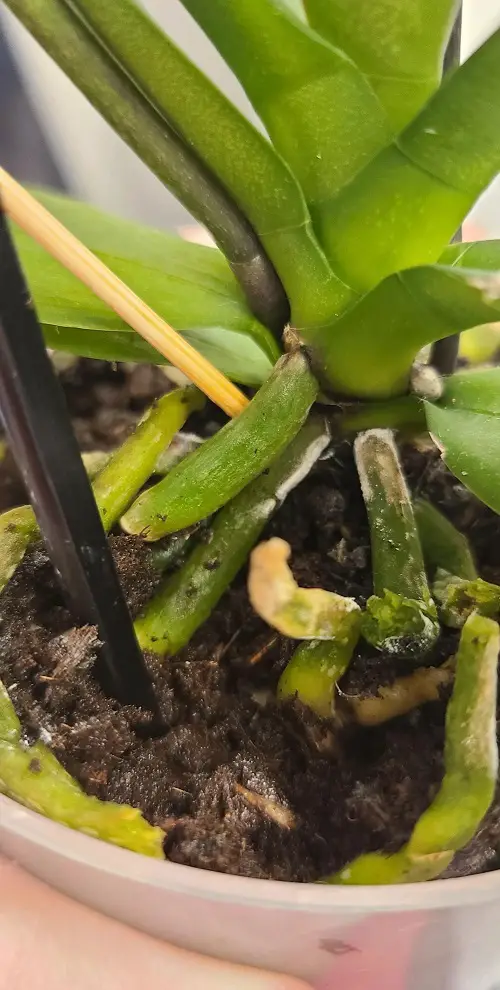
Excess minerals in tap water and overfertilizing can lead to salt buildup in your orchid plant, damaging roots, causing leaf burn, and overall stunted growth. Traces of white powdery sediments on the medium or even the stems and foliage are clear signs of this.
During this phase, you must stop fertilizing your plant! If you see white residue on the pot surface or yellow and brown spots on your orchid’s leaves, here’s what you do.
After pulling back on fertilizers, flush your orchid pots with 5-6 liters of distilled or RO water. For best health, do this once a month, and avoid hard water and fertilizing a lot if this is a common occurrence.
5. During Extremities or Pest Infestation
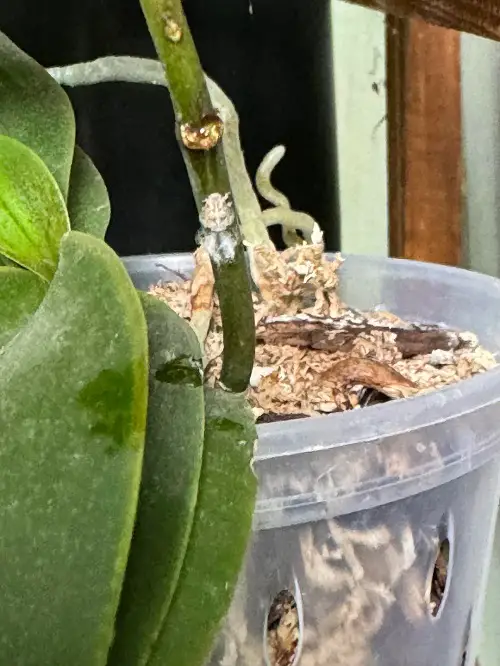
All kinds of extremities, from temperature fluctuations to sudden pest infestations, can stress and shock your orchid. And this is a crucial time when you absolutely should not fertilize your plant! Orchids prefer mild feed during mild temperatures, say 50-90 F
Fertilizing when your plant is stressed will worsen its condition in multiple ways. First, its inability to absorb nutrients will lead to salt buildup. Extra fertilizer can burn roots, push fungal growth, and weaken your plant.
Before you do anything else, manage the pests and regulate temperatures according to the orchid variety. Once your plant has healed and revived, gradually reintroduce a gentle feed to get long-lasting orchid blooms.
In summary, fertilizing orchids relies on understanding their specific needs. Always dilute the feed to avoid root burn and salt build-ups, and flush the growing medium regularly. Provide humidity and indirect sunshine to help them absorb nutrients better. And follow these orchid care tips for a long-lasting plant!


